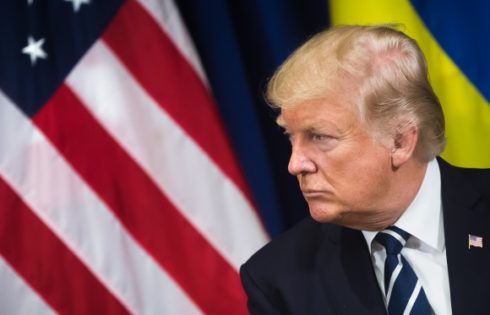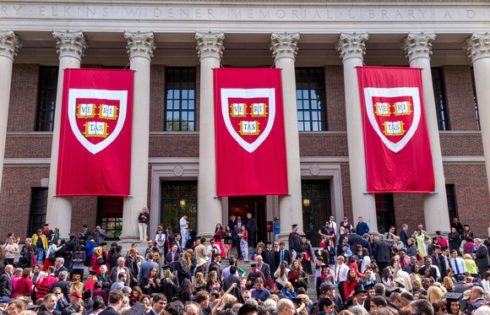 Eli Gentle is a graduate student in Arab literature at the American University in Cairo. He has lived in Cairo since August 2010, though he’s currently in Dubai. He was an economics major at the University of Alabama at Birmingham, and studied Arabic as a minor.
Eli Gentle is a graduate student in Arab literature at the American University in Cairo. He has lived in Cairo since August 2010, though he’s currently in Dubai. He was an economics major at the University of Alabama at Birmingham, and studied Arabic as a minor.
Judah Bellin: Did you have any interactions with the protests?
Elisha Gentle: The first of the protests was January 25—that was the official day of rage. It was the police day, in Egpyt. That was when they actually had permission to protest, so the protests were organized and tacitly approved by government. ‘We’re going to let you have your protest,’ on Tuesday. ‘This was fine, but don’t do it again.’ They did it again of Friday, Jan 28. That was kind of the second day of rage, and that’s when you saw clashes with the police. That was when you saw the tear gas, that was when you saw people getting beat up in the streets.
JB: Did you go out during the protests?
Gentle: I was in the streets on Friday. I did not go to any protest sites, at all, during the time. But I was out every single day (of the protests), during non-curfew hours.
For example, on Friday, I was out and in my own neighborhood—Maadi—and so I was out in that neighborhood, and the streets were quiet, they were friendly, there were people out going about their business, people going to work, people riding the metro rail, some people obviously going to protests, some people just going about their daily lives. A lot of people were going to check on family; they had family members nearby. Friday was also the day people started stocking up on food, so Friday was when you first noticed a run on grocery stores, and the runs on ATMs. People knew things were going to get serious.
As of Friday morning, there was no curfew, but the state TV network announced there would be a curfew right after, like, in the middle of the afternoon, right before the curfew was scheduled to begin. I got the news around 5:30 that at six, there would be a curfew instated. So it was kind of ridiculous, because you had thousands and thousands of people, 20 minutes before the curfew out in the streets—so were the police. Now you say, ‘There’s going to be a curfew.’ So, we wondered how they were actually going to enforce it.
Saturday morning, I woke up and the police were gone. The police had disappeared from the streets. Saturday morning was, sort of, a collective sigh of ‘We made it through the first night,’ but we were still really apprehensive about what was going to happen. People started to get worried because they didn’t see the police out, and they wondered, basically, who was going to protect them, who was going to direct traffic, who was going to prevent looting.
On Saturday, I went out also, I went to an area of Cairo called 6th of October City, which is kind of a satellite city of Cairo. I tutor high school and middle school students out there. I went out there about 11 a.m and that’s when I saw cars had been burned up. I saw a group of about 150 to 200 men and boys that were actually stealing parts from a car dump, so it was a car dump essentially on a hillside, where cars had built from scraps. About 150 to 200 people had entered that and had begun to take off parts of vehicle batteries, tires, even doors, and run off with them. So they were looting, and the military was there, but not really doing anything to stop it.
JB: Was there one day that was worse than the others?
Gentle: Saturday night–anybody who was in Cairo will tell you this–Saturday night was the worst and most scary of the entire Egyptian protest. Remember Saturday was the day without police. Saturday afternoon, rumors started circulating that there were armed gangs on motorbikes that were beating through neighborhoods in Cairo, and breaking and entering into people’s homes, vandalizing cars, and threatening people.
Some of these gangs had been apprehended or confronted by people in the neighborhoods they were entering, and been detained. The real kicker was that, after they had been detained by the locals, they discovered government-issued weapons and government-issued security IDs on these people, although they were dressed in plain clothes. So you had what was widely believed to be plain-clothes security officers terrorizing neighborhoods.
At the same time, news broke about the fires in the prisons. I live about five minutes from one of the prisons that was supposedly on fire—Torah Prison. Word had spread that people were breaking out from prison, then later it changed to be people were being released from prison.
So, nobody really knew how, but the prisoners were getting out. The government was using that as fuel to frighten people to stay home. So, it was actually fairly ingenious tactic, although it was fairly draconian, because it allowed them not to use external force in the face of the protests, but do something that was very, very effective to make people band together in their neighborhoods to prevent looting and prevent property damage.
JB: Did you think the protests would escalate to this level of intensity?
Gentle: After the protest on Tuesday, the consensus was that Friday the 28th there would be escalation. So, Tuesday was rather peaceful, but when they called for a second day of rage on Friday, everyone sort of held their breath, because they were expecting it to escalate and possibly be violent.
JB: Have you spoken to any Egyptians about the protests? Did anything you had heard them say anything over the past few months indicate that something like this would happen?
Gentle: Yes, I talked to quite a few Egyptians about this, and really kind of a swath from all different walks of life. From very upper-class elite Egyptians to, you know, regular, unemployed college graduates.
The interesting thing that I saw last week was a split within the regular citizens: Some who believe that Mubarak made enough concessions, and that he’s going to implement them, and that the protesters should go home, so that Egypt can get back to being a functioning country.
The other people I talked to believe that the protests should not end until Mubarak leaves office. Their argument is that we’ve known this regime for 30 years, what makes you think anything will actually be done. If he remains in power, he’s just going to keep doing what he’s always done.
For more about how U.S. students dealt with the protests in Cairo, read our interview with Sloane Speakman, a Vanderbilt junior.
Judah Bellin is a columnist for the Cornell Daily Sun and a member of the Student Free Press Association.
Like The College Fix on Facebook / Follow us on Twitter





Please join the conversation about our stories on Facebook, Twitter, Instagram, Reddit, MeWe, Rumble, Gab, Minds and Gettr.